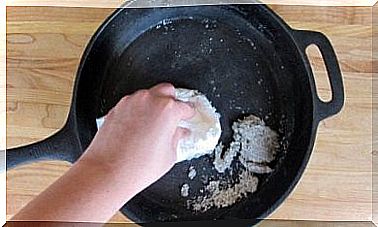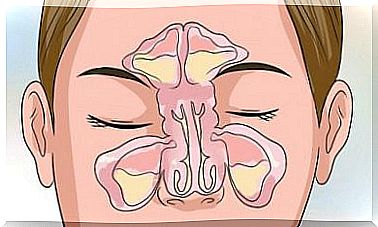Nose Bleeds: 10 Main Causes
Only very heavy and repeated nosebleeds are worrying. Otherwise, it is usually a trivial cause and the situation can be managed at home.

In most cases, the nose bleeds for reasons that have nothing to do with a serious health problem. However, it is not a symptom to be taken lightly either. Indeed, when nosebleeds are repetitive or intense, they can be linked to a more serious problem.
This is a symptom that almost everyone has experienced at some point in their life. So, when the nose starts to bleed, almost everyone knows a home remedy to treat the bleeding.
Whatever happens, it is always good to know the reasons why the nose is bleeding. Most of them are harmless and should not cause concern. In addition, the technical name of this type of hemorrhage is “ epistaxis ” and only deserves a medical consultation when it is recurrent.
Nose bleeds
It is estimated that at least 60% of the population has experienced at least one nosebleed. In the nasal cavity there are many blood vessels and most of them are relatively shallow. About 95% of nosebleeds start in the area near the nostrils. This is called anterior epistaxis.
On the other hand, when the bleeding starts in the deeper part of the nose, it is a posterior epistaxis. Usually, in this case, the bleeding is larger and more difficult to manage. When this type of bleeding occurs, it requires immediate medical attention.
On the other hand, nosebleeds are more common in children under 10 and adults under 45. However, this can happen at any age. Here are the main causes of nosebleeds.
1. Drought
Often the nose bleeds because there is not enough moisture in the nasal cavity. This causes dryness and makes bleeding easier. The problem is caused by not breathing through your nose, not cleaning it, viruses or allergies. But it does not matter.

2. Foreign body
It is quite common for children to put objects in their noses and go unnoticed. Over time, bleeding may occur, which is usually accompanied by a purulent secretion, a bad odor and difficulty in breathing. It is preferable that this case be handled by qualified personnel.
3. Allergic rhinitis
The allergic rhinitis is not always accompanied by nasal bleeding, but it often has this symptom. This type of bleeding is spontaneous and usually occurs at night. This is not a worrying sign. On the other hand, it is advisable to speak to a specialist in order to control the allergy.
4. Lesions
Lesions are the most common cause of nosebleeds. They are generated by beating, scratching your nose or blowing your nose too hard. In these cases, home remedies are often sufficient to stop the bleeding. In addition, more severe hits to the nose, or the skull, also cause bleeding which requires medical intervention.
5. Hypertension, a possible cause of nosebleeds
Until some time ago, it was believed that hypertension could cause mild and fairly frequent nasal bleeding. Today, it is believed to be the opposite: nasal hemorrhage generates anxiety and raises blood pressure.
6. Inadequate environment
Sometimes the environment is too dry, mainly due to heating or air conditioning. As a result, the nasal mucosa dries up and any minor damage leads to nosebleeds. This is quite manageable with home solutions.

7. Use of certain substances
Certain substances make people more predisposed to nosebleeds. Anticoagulants and anti-aggregants are part of it. In addition, the excessive use of decongestants facilitates bleeding.
8. Von Willebrand disease, a possible cause of nosebleeds
Von Willebrand’s disease is a serious condition that has some similarities to hemophilia. This is a genetic problem that causes difficulty in clotting. Frequent and profuse nosebleeds can be a symptom of this condition.
9. Other diseases
There are other serious illnesses that lead to heavy and regular nosebleeds. For example, we find leukemia, some malignant tumors and liver disease. When the bleeding corresponds to the mentioned characteristics, it is always necessary to consult a doctor.
10. Other causes of nosebleeds
Sometimes a benign tumor puts pressure on the blood vessels that supply the nose and cause bleeding. Likewise, changes in atmospheric pressure or altitude can cause bleeding. This takes place while traveling by plane or climbing a very high mountain.
In short, as we mentioned, most nosebleeds are not of concern. However, it is important to discuss them with the doctor, especially if they become recurrent.









